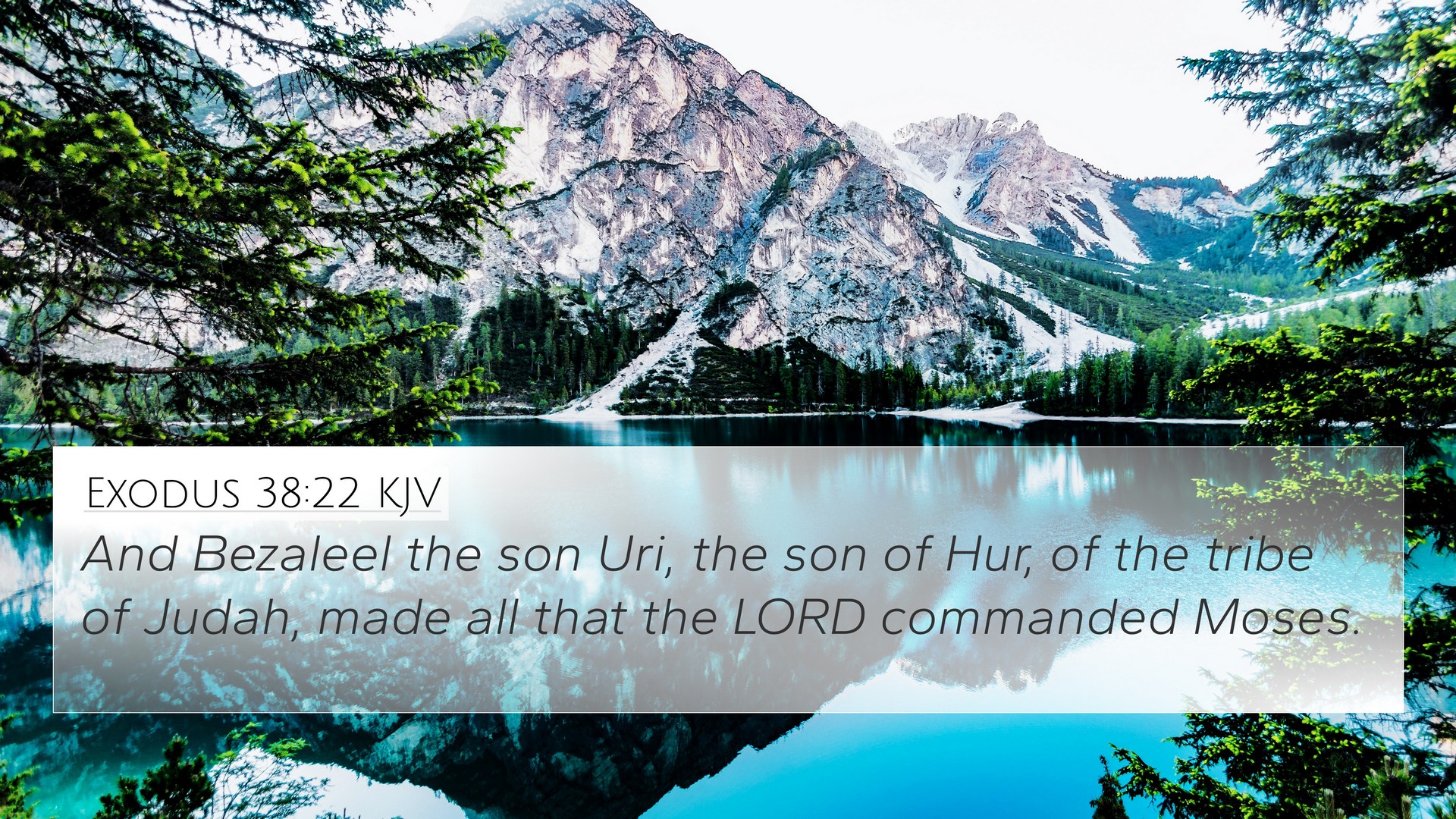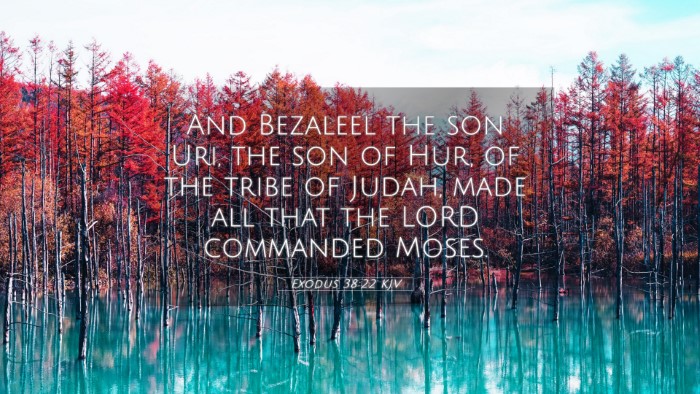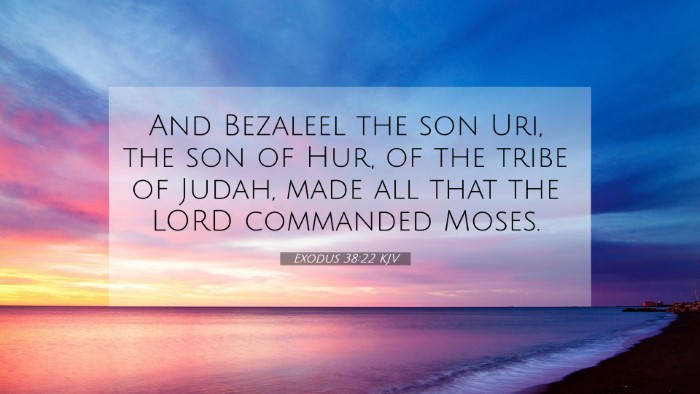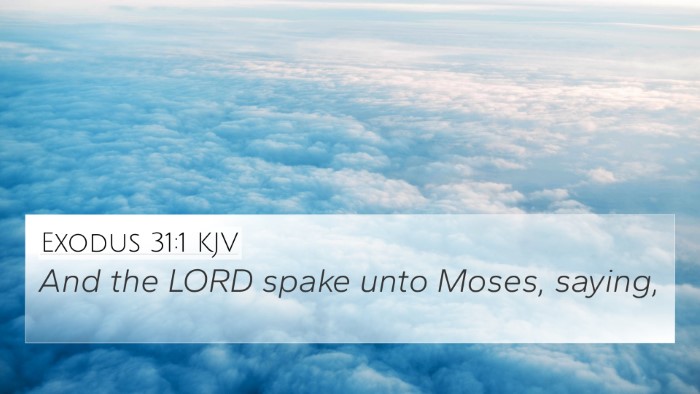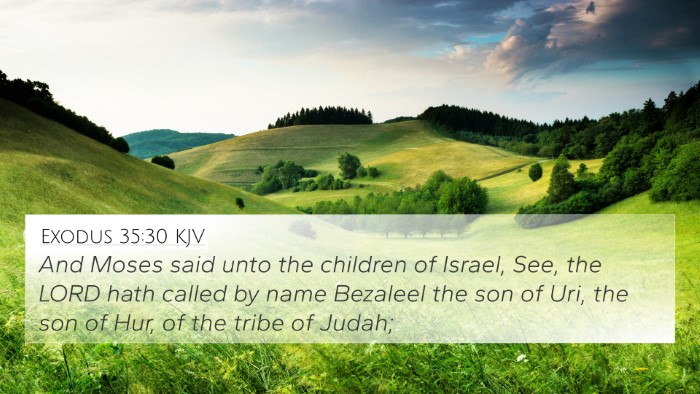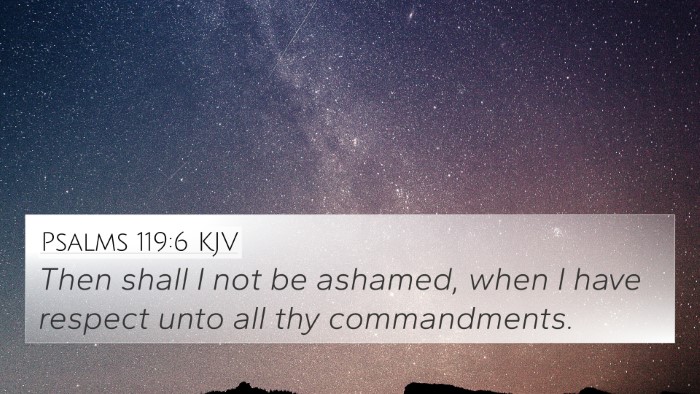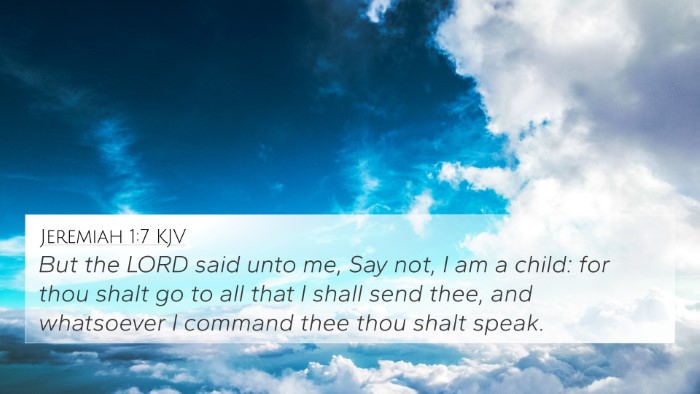Understanding Exodus 38:22
Exodus 38:22 describes the appointment of a key figure in the construction of the Tabernacle, Bezalel, son of Uri, of the tribe of Judah, who was filled with the Spirit of God to execute the artistic work required for this sacred task. This verse is pivotal in illustrating God's providence in equipping leaders for His service.
Summary of Insights
This verse highlights several important themes:
- Divine Selection: Bezalel's selection reflects God's specific choice for His work, emphasizing that those chosen for spiritual service are appointed by divine will.
- Spiritual Empowerment: The phrase “filled with the Spirit of God” indicates that artistic and skilled work in the service of God is inspired by His Spirit, suggesting the sacredness of craftsmanship in worship.
- Construction of Sacred Space: The Tabernacle serves as a vital resting place for God's presence among His people, and Exodus 38:22 marks a significant step in its creation through human collaboration.
Connections Between Bible Verses
Exodus 38:22 intersects with numerous other scriptural passages that further elucidate its themes:
- Exodus 31:2-5: Here, God appoints Bezalel as a master craftsman, indicating his divine appointment and the specific skills necessary for the sacred work.
- 1 Corinthians 12:4-7: This passage speaks to spiritual gifts within the body of Christ, showing that every believer is equipped uniquely by the Spirit for service.
- Isaiah 28:26: This verse discusses God teaching humanity skills and wisdom for their tasks, reinforcing the theme of divine guidance in craftsmanship.
- Matthew 5:14: Illustrates that believers are to be light in the world, paralleling the communal work exemplified in Exodus while noting the collective responsibility of believers.
- Philippians 2:13: God working in us to will and to do His good purpose, connecting the divine enablement seen in Bezalel’s life to the community of faith.
- Hebrews 3:3-4: Emphasizes the significance of constructing the house of God, similar to how the Tabernacle was created as a dwelling place for God.
- Ephesians 2:10: This verse states that believers are God's handiwork, suggesting a continuity in God's work through skilled individuals throughout the scriptures.
Thematic Bible Verse Connections
In examining Exodus 38:22, specific themes emerge that resonate throughout the Bible:
- Divine Calling: The calling of individuals for specific tasks is a recurring theme, as seen in the lives of prophets and leaders, including Moses, David, and Paul.
- Worship and Artistry: The connection of artistry to worship reflects in passages like Psalm 33:3 and Psalm 149:3, highlighting music and creativity as forms of praise.
- Community and Collaboration: Similar collaborative efforts are seen in Nehemiah's rebuilding of the wall (Nehemiah 3), showcasing God’s work through His people.
Bible Verse Cross-References
If you're seeking further cross-references for deeper understanding, consider the following:
- Matthew 25:14-30 – Parable of the Talents
- Romans 12:6-8 – Gifts of service in the body of Christ
- Acts 20:28 – God appointing shepherds for His flock
- 1 Samuel 16:7 – God looks at the heart, not outward appearances when selecting leaders
- Exodus 35:30-35 – Detailed description of Bezalel's design skills and wisdom imparted by God
- Jeremiah 1:5 – God's calling before birth
- Revelation 21:2 – Spiritual implications of God's dwelling with humanity
Using Bible Cross-References
For those interested in exploring the connections and implications of Exodus 38:22 through cross-referencing, consider these tools:
- Utilize a Bible concordance to find related verses and themes.
- A Bible cross-reference guide can illuminate thematic parallels between different scriptures.
- Employ various cross-reference study methods for comprehensive understanding.
Conclusion
In summary, Exodus 38:22 serves as a profound reminder of God's ongoing work through individuals and communities in His salvific story. The spiritual empowerment and divine calling seen in Bezalel's life provoke important reflections in modern faith contexts, equipping believers to understand their roles in God's redemptive narrative.
